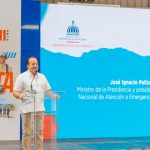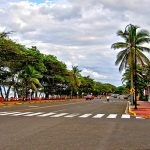Dominican Republic advocates for scientific facility to study climate change in the Caribbean

Santo Domingo.- Max Puig, Executive Vice President of the National Council for Climate Change, emphasized the importance of a Synchrotron for the Dominican Republic and the Caribbean to address critical environmental challenges. Speaking at the Synchrotrons in the Greater Caribbean and Beyond forum, part of UNESCO’s Open Forum of Sciences for Latin America and the Caribbean (CILAC), Puig highlighted that a Synchrotron would enable research on issues like rising ocean temperatures, acidification, and biodiversity loss, essential for climate adaptation.
Puig described the Synchrotron as more than a particle accelerator, calling it the region’s largest scientific project. He stressed its potential to advance the Sustainable Development Goals (SDGs), particularly in clean energy, climate action, and sustainable development. He positioned the project as a catalyst for socially just, environmentally sustainable, and economically viable progress.
The forum featured prominent international scientists, including Caterina Biscari, director of Spain’s ALBA Synchrotron, and Harry Westfahl, director of Brazil’s Synchrotron Light Laboratory. The Dominican Republic was represented by Dr. Moisés Álvarez and Dr. Denia Cid of the National Council for Climate Change. The event follows the 2023 LAMISTAD symposium, which promoted the construction of a Synchrotron in the Greater Caribbean. The LAMISTAD project seeks to foster groundbreaking scientific discoveries and strengthen technical capabilities across the region.
















